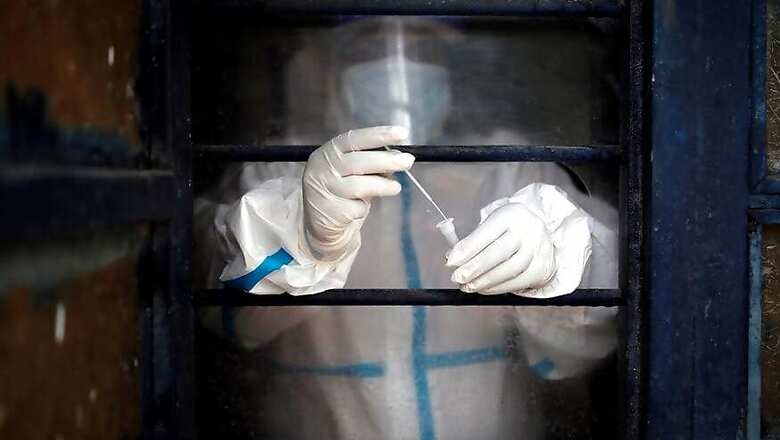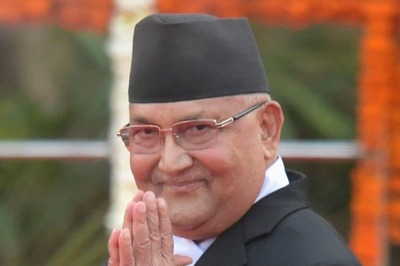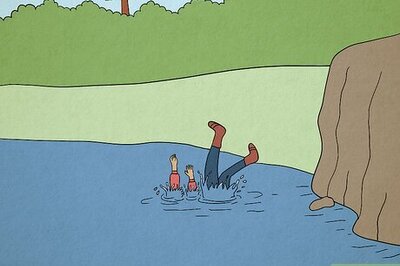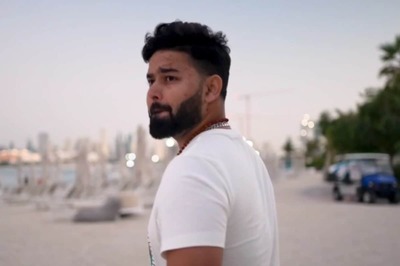
views
As many as 22 states are doing more than 140 COVID-19 tests per day per million in line with the comprehensive testing guidance note by the WHO, the Health Ministry said, while advising the remaining ones to increase testing accordingly.
Explaining if India was testing adequately, Rajesh Bhushan, officer on special duty in the Health Ministry, said a guidance note by the World Health Organization underlined the need for comprehensive surveillance and testing of suspected cases.
"While defining the meaning comprehensive in the same document, they say if you are testing 140 people per day per 10 lakh people, that would be indicative of comprehensive," Bhushan said at a press briefing.
"There are 22 states performing more than 140 COVID-19 tests per day per million in line with comprehensive testing guidance note by the WHO," Bhushan said. "India is conducting about 201 tests per day per million population."
Goa tops the list with 1,058 tests per day per million people, followed by Delhi with 978, Tamil Nadu with 563, Assam with 310, Karnataka 297, Madhya Pradesh 249, Jharkhand 242, Rajasthan 235, Maharashtra 198 tests per day per million population respectively.
"But not all states are testing at that rate. Our advice to the remaining states and UTs is to increase testing as per the WHO-prescribed levels," Bhushan said.
Asked about the fatality rate, he said the national COVID-19 fatality rate was 2.6 per cent and it was coming down rapidly. "Compared to the global case, fatality rate it is significantly lower," he added.
"COVID-19 cases and deaths per million in India is amongst the lowest in the world," Bhushan said.
India has 657 cases per million population as against 1,638 globally and 17.2 deaths per million as against 73 globally, Bhushan added.
He pointed out a special intervention has been initiated to assist states that have higher fatality rates.
Every week, on Tuesday and Friday, a group of doctors from AIIMS, through tele-consultation and video consultation, engage the ICU doctors of treating hospitals in various states and try to resolve the problem that they are facing in saving critically ill patients, according to Bhushan.
"As we talk today, there is a tele-consultation that is going on. In fact, when I was coming here, I was told that today's tele-consultation conducted by doctors of AIIMS is being attended by three hospitals of Assam, four hospitals of Kerala, two of Andhra Pradesh, one of Karnataka, two of Bihar and one of West Bengal," he said.
"So these tele-consultations are forums where treating clinicians get an opportunity to talk to the top most doctors from AIIMS, New Delhi, and be benefited from the advice that they give them," he said
Bhushan informed that central government hospitals like the Safdarjung, RML, Lady Hardinge Medical College and six AIIMS, other than AIIMS Delhi, were doing a consultative exercise, as part of which the treating doctors there are informing the DGHS on the kind of complications that are being faced by the recovered COVID patients
"Based on that information, the ministry might come out with guidelines in future," he said.
On whether coronavirus is airborne, ICMR Director General Balram Bhargava said it was well established that COVID transmission was a droplet infection.
There have been hypothesis and suggestions by several scientists that there may be some airborne transmission with micro-droplets, which again are droplets less than five microns in size, Bhargava said.
"What clearly remains important is physical distancing and use of masks, and that has to continue to curb the transmission of the disease," he said.
Asked if there was a need for a national lockdown, Bhushan said if the strict containment and perimeter control was not implemented in containment zones, then cases might increase.
Many districts and cities where when efforts and preventive steps slackened, the positive cases rose, he said.
It is important that whenever a large number of positive cases come from a particular area, that area is contained and proper containment measures are implemented, Bhushan said.
These should not be seen as connected to lockdown, he added.



















Comments
0 comment